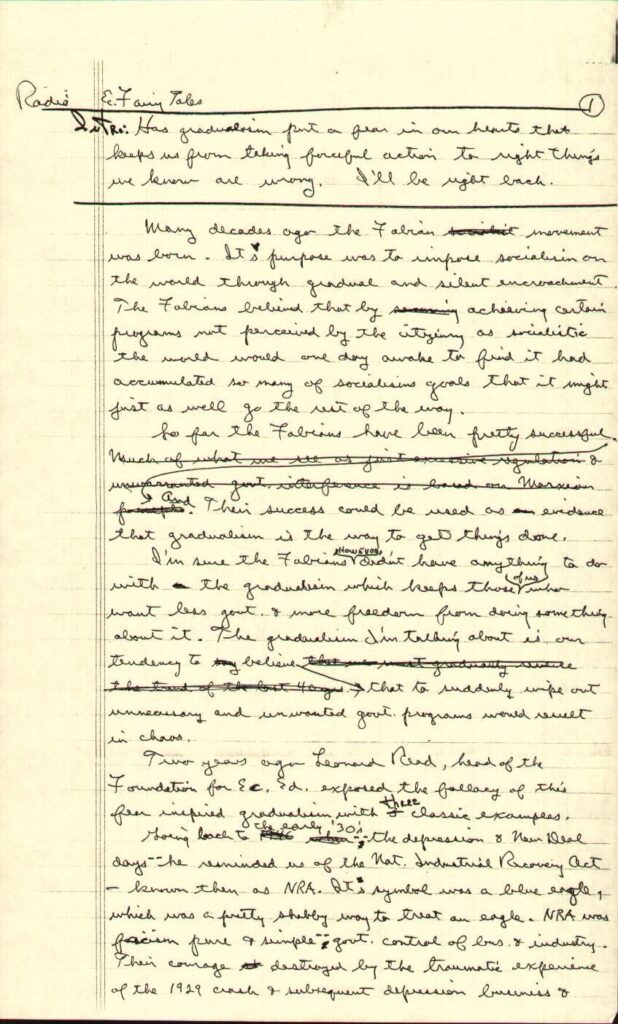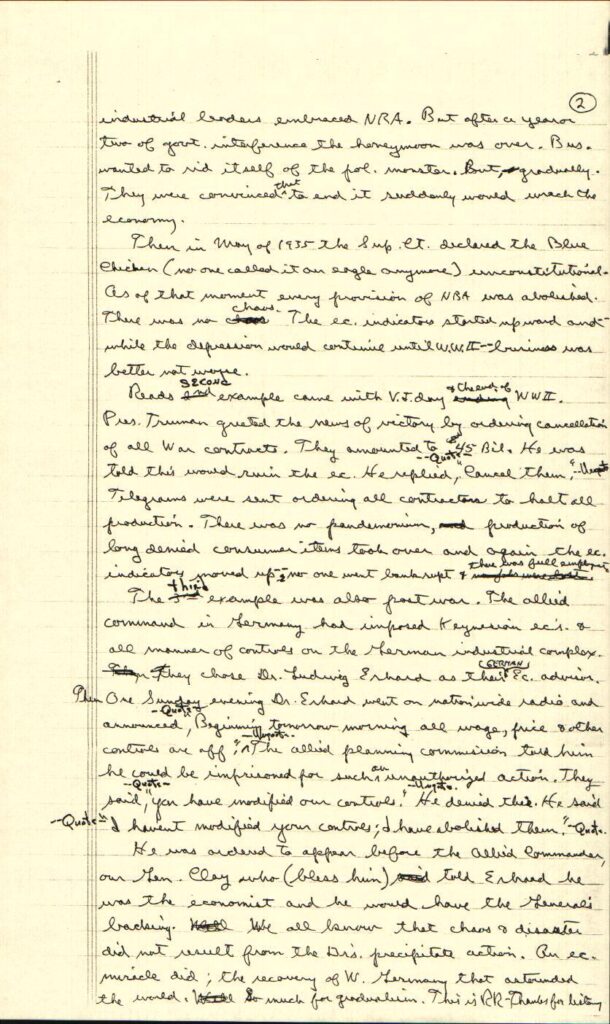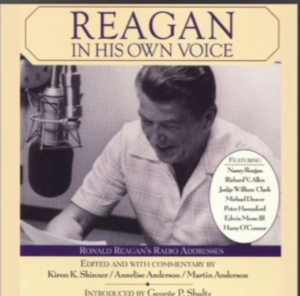End All Energy Subsidies Now! (Ronald Reagan remembered)
By Greg Rehmke -- June 13, 2024“We have long discovered that nothing lasts longer than a temporary government program.” (- Ronald Reagan)
In the 1970s – fifty years ago now – The Energy Crisis jolted the U.S. economy, causing shortages and long lines at gas stations. In response, various federal energy policies and programs were passed. And as the decades passed, layer-upon-layer of new federal energy programs and regulations were added, then extended and expanded.
The energy crisis is decades past, and technology advances in oil and natural gas drilling have yielded booming supplies, allowing the U.S. to become a major oil and natural gas exporter. So maybe it is time (or past time) to “push the button” to end the dense and expensive thicket of federal energy market interventions (including subsidies and mandates for wind, solar, ethanol, electric vehicles, plus fuel economy standards).
Ronald Reagan, before he ran for President, had a popular radio program featuring three-minute addresses on key public policy issues. Some of these were written by speechwriters, and others Reagan wrote himself. Below are the two pages, in Reagan’s handwriting, of Economic Fairy Tales.
Drawing from an article by Foundation for Economic Education founder Leonard Read, Reagan offered three historical example of major federal programs that were quickly abolished, against the wishes of government and business advisors.
Chaos and economic downturns were predicted if these programs were ended too quickly. But instead, economic adjustments were rapid and ending these failed programs helped and healed the economy. Click here for the audio for Economic Fairy Tales.
If alive today, Leonard Read and Ronald Reagan would advocate these same reforms for current U.S. energy policies. Push the button!
Note: See here in regard to 15 extensions of the ‘temporary’ solar Investment Tax Credit (ITC), and here in regard to 14 extensions of the ‘temporary’ wind Production Tax Credit (PTC).
————————————-

Could national high school debaters run a Ronald Reagan/Leonard Read push-the-button affirmative? We can’t undo the past but we can, debaters can, lift the dead hand of the state from today’s Constitutional republic. (Called “legislative fiat” in debate.)
Even business leaders can be fearful of dramatical policy changes proposed by “radical” reformers. If voters could push a button to sunset all federal energy policies by the end of 2024, would they? And if voters (i.e. debate judges) would, politicians could as well.
For anyone fearful of economic dislocation or natural security concerns from ending current energy policies, no problem. Congress could simply reinstate energy policies and programs deemed “critical.”
Subsidies and tax reductions for fossil fuel industry would also sunset, but, again, Congress could vote to renew these or any other subsidies thought essential.
—————————

After serving as governor of California but before running for president, Ronald Reagan recorded over a thousand radio broadcasts, most focused on reducing the size and scope of government:

Reagan gave 1,027 of these addresses to an audience of 20 to 30 million listeners each week, interrupted only by his initial run for the White House in 1976. A researcher visiting the Reagan Library found that the former governor wrote at least 679 of the commentaries in longhand on yellow legal pads. The manuscripts are currently archived at the Ronald Reagan Presidential Library in California.Ronald Reagan Radio Broadcasts (1976-1979), (National Registry, 2007)
Researchers found the yellow legal pages with Economic Fairy Tales in Reagan’s handwriting, including edits (see images above). In Economic Fairy Tales (link to MP3 audio), three historical episodes are given, drawn from an essay by Leonard Read, founder and then president of the Foundation for Economic Education.
Cool!